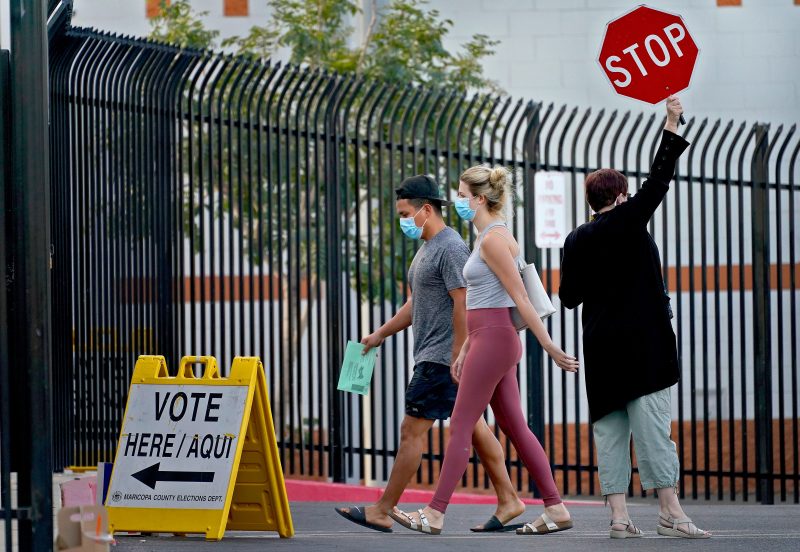In recent times, the sanctity of voting has come under intense scrutiny across the United States, prompting several states to reassess the locations used for polling. One such state that is grappling with this issue is Arizona, where schools are increasingly hesitant to offer their campuses as polling locations, citing concerns for student safety and disruptions to the learning environment.
The decision to use schools as polling places has been a long-standing tradition in many communities. Schools are often centrally located, easily accessible, and equipped with the necessary infrastructure to accommodate large numbers of voters. However, in the wake of heightened security concerns and the potential for disruptions on campus, many schools in Arizona are voicing their reluctance to serve as polling locations.
A key reason driving this reluctance is the increased focus on school safety in the face of growing threats. The presence of strangers on campus during election day, some of whom may not have undergone thorough background checks, raises legitimate security concerns for school administrators. Ensuring the safety and well-being of students is the top priority for schools, and the potential risks associated with opening their doors to the public as polling locations are prompting many to reconsider their participation in the electoral process.
Moreover, the logistical challenges that arise from using schools as polling places are also weighing on the decision-making process. Hosting a polling location requires a significant amount of coordination and resources from school staff, impacting their ability to focus on educational responsibilities. The disruption caused by the influx of voters can disrupt normal school operations, affecting both students and teachers alike. This disruption can be particularly pronounced during primary and general elections when voter turnout is typically high.
Another factor contributing to schools’ reluctance to be polling locations is the impact on the learning environment. Schools are dedicated spaces for education and personal development, and the presence of polling activities can create a distracting and chaotic atmosphere. The noise, crowds, and general commotion associated with polling can compromise the academic environment and hinder the learning experience for students. Maintaining a conducive and focused atmosphere within schools is essential to promoting student success, and the use of schools as polling places can undermine these efforts.
In response to these challenges, election officials and community leaders in Arizona are exploring alternative options for polling locations. Public buildings, community centers, and other non-school facilities are being considered as potential sites for future elections, aiming to address the concerns raised by schools while ensuring accessible and secure voting opportunities for residents.
As the debate over the use of schools as polling locations continues, it is essential to strike a balance between ensuring the integrity of the electoral process and safeguarding the well-being of students. By engaging in constructive dialogue and collaboration, stakeholders can work together to find solutions that uphold the democratic right to vote while respecting the safety and educational mission of schools. Adapting to evolving security challenges and logistical considerations, Arizona and other states can navigate this complex issue to preserve the essence of democracy in a manner that is sustainable and inclusive for all.

